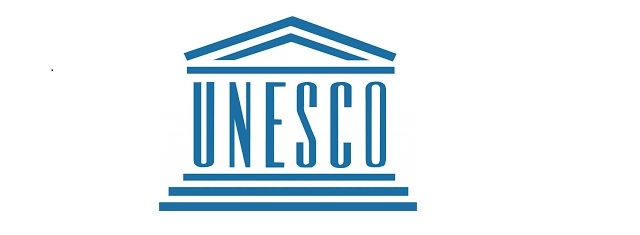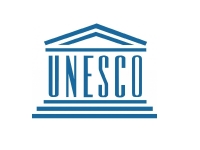Lifestyle
UNESCO - Education by 2030, A common goal, 15 years, many challenges
25-26 May 2016 - The first meeting

UNESCO
Last week on 25-26 May 2016, UNESCO convened the first meeting of the SDG-Education 2030 Steering Committee at UNESCO, Paris. Jordan Naidoo is the Director of the UNESCO Division for Education 2030 Support and Coordination.
Below, the statement given on May 27,2016 :
The Steering Committee is a democratic, multi-stakeholder partnership, providing both a forum for discussion and a forward-looking vision on how to put the education agenda into action.
Below, the statement given on May 27,2016 :
The Steering Committee is a democratic, multi-stakeholder partnership, providing both a forum for discussion and a forward-looking vision on how to put the education agenda into action.
Much progress was made at the meeting, particularly confirming the broad base of representation; ensuring effective, democratic processes of the Steering Committee; and agreeing the Terms of Reference and initiating discussions on a roadmap towards achieving the sustainable development goal 4 of ensuring “inclusive and equitable quality education and promote lifelong learning opportunities for all.
Jordan Naidoo, Director of the UNESCO Division for Education 2030 Support and Coordination said: 'We are most grateful to all members of the Steering Committee for a successful first meeting. Members provided clarity on operational issues, and reflected substantively on priorities such as equity, quality and learning, as well as the challenges and opportunities for financing the new agenda'.
Yet all members of the Committee recognize the enormity of the task ahead. We asked some of the Steering Committee members what they see as the biggest challenges in the Education 2030 agenda.
Yet all members of the Committee recognize the enormity of the task ahead. We asked some of the Steering Committee members what they see as the biggest challenges in the Education 2030 agenda.
- A changing world: technological challenges
Dankert Vedeler, from the Norwegian Ministry of Education and Research & Steering Committee Chairperson :
'Our main task is continuing the work of the Education for All programme ““ getting kids into school and making sure that they learn whilst they are there. To achieve this, we need to step up efforts in all countries. One challenge is that of technological developments and their impact on both education and the economy. For now, we do not know the consequences of robots in the workplace: whether they will 'out-compete' humans, and what skills we will need in future.'
Dankert Vedeler, from the Norwegian Ministry of Education and Research & Steering Committee Chairperson :
'Our main task is continuing the work of the Education for All programme ““ getting kids into school and making sure that they learn whilst they are there. To achieve this, we need to step up efforts in all countries. One challenge is that of technological developments and their impact on both education and the economy. For now, we do not know the consequences of robots in the workplace: whether they will 'out-compete' humans, and what skills we will need in future.'
'My job, as Chairperson, is to find common concerns and experiences from all stakeholders to plot a roadmap. This must have built-in flexibility as there are many external challenges which will affect our work over the next 15 years.'
- Population growth: how to fund education
Mr Muhammad Humayun representing the E9 countries, in which 60% of the world´s population lives :
'In the coming years, there will be approximately 180 million more pupils going to school, many in high populous E9 countries, where population growth stands at 3%. This clearly means that we need more teachers and more schools.'
- Population growth: how to fund education
Mr Muhammad Humayun representing the E9 countries, in which 60% of the world´s population lives :
'In the coming years, there will be approximately 180 million more pupils going to school, many in high populous E9 countries, where population growth stands at 3%. This clearly means that we need more teachers and more schools.'
'It also means improving the facilities we have as lack of electricity, water and boundary walls mean that some parents don´t send their children ““ especially their girls ““ to school. These new facilities must be made taking into account transport networks, as well as social and cultural barriers. We, as E9 countries, estimate that this will cost in the region of USD239bn or which we will have a shortfall of USD39bn. We are hoping that the Steering Committee can help resolve the financing issue.'
- We must remember our values
Camilla Croso, President, Global Campaign for Education representing civil society :
- We must remember our values
Camilla Croso, President, Global Campaign for Education representing civil society :
'I think the main difficulty in achieving SDG4 is ensuring political will. By this I don´t just mean financing, but creating all the necessary democratic conditions for including citizens in the debate. We must truly value teachers: whether in rural Brazil or metropolitan Hong Kong, they need to have good working conditions and autonomy. We also need to respect the identities of students as individuals not numbers. And we can only do this through a strong public system. The other challenge for the Steering Committee is maintaining the vision for 'inclusive, quality and equitable' education and not getting bogged down with quantitative data : we also need the qualitative dimensions.'
'Our work should be more thematic: the way in which this first Steering Committee now sets the agenda for the next 15 years is crucial.'
- Looking ahead
Mr Qian Tang, UNESCO Assistant Director““General for Education, in his concluding remarks, underlined the importance and uniqueness of the Steering Committee which brings together all the major players of education. He stressed that we needed to amplify these advantages and recalled that the main tasks of this coordination body, in its role to support Member States and partners to achieve SDG4-Education 2030, are to undertake evidence-based advocacy, communication, review progress and identify gaps and coordinate activities.
- Looking ahead
Mr Qian Tang, UNESCO Assistant Director““General for Education, in his concluding remarks, underlined the importance and uniqueness of the Steering Committee which brings together all the major players of education. He stressed that we needed to amplify these advantages and recalled that the main tasks of this coordination body, in its role to support Member States and partners to achieve SDG4-Education 2030, are to undertake evidence-based advocacy, communication, review progress and identify gaps and coordinate activities.
Therefore, the Steering Committee agreed, before its next meeting in November/December, to identify further areas of research; plan regional consultations and establish smaller working groups on selected areas. There was a general consensus for a need to further discuss financing and identify other existing education-related bodies in order to forge more linkages, in order that future discussions may be as rich as this first Steering Committee meeting.
Ruby BIRD
http://www.portfolio.uspa24.com/
Yasmina BEDDOU
http://www.yasmina-beddou.uspa24.com/
Ruby BIRD
http://www.portfolio.uspa24.com/
Yasmina BEDDOU
http://www.yasmina-beddou.uspa24.com/
Jordan Naidoo Steering Committee Many Challenges 5 Years A Common Goal Education By 2030 First Meeting Unesco Yasmina Beddou Ruby Bird Director Of The Unesco Division For Education 2030
Liability for this article lies with the author, who also holds the copyright. Editorial content from USPA may be quoted on other websites as long as the quote comprises no more than 5% of the entire text, is marked as such and the source is named (via hyperlink).






